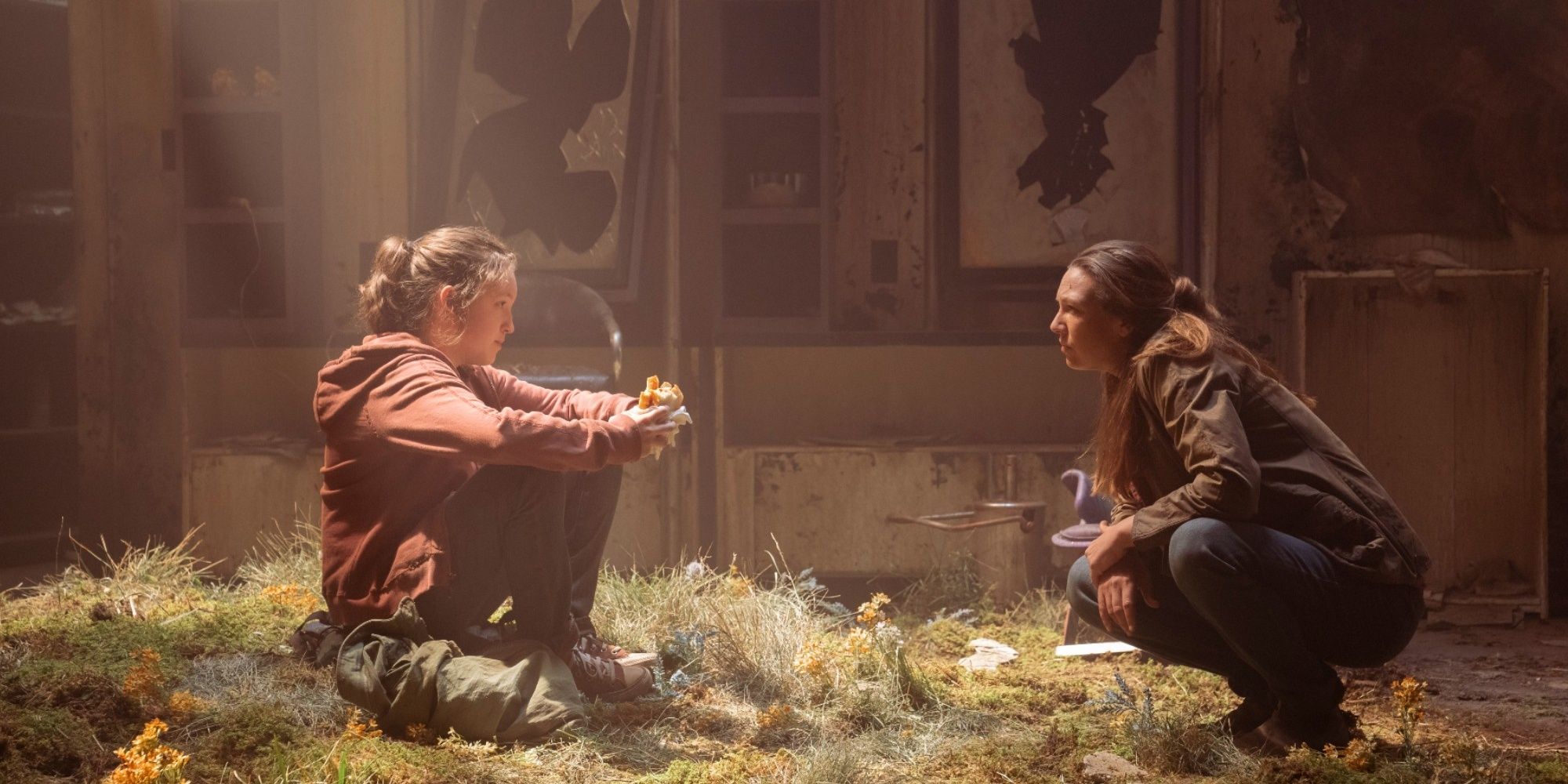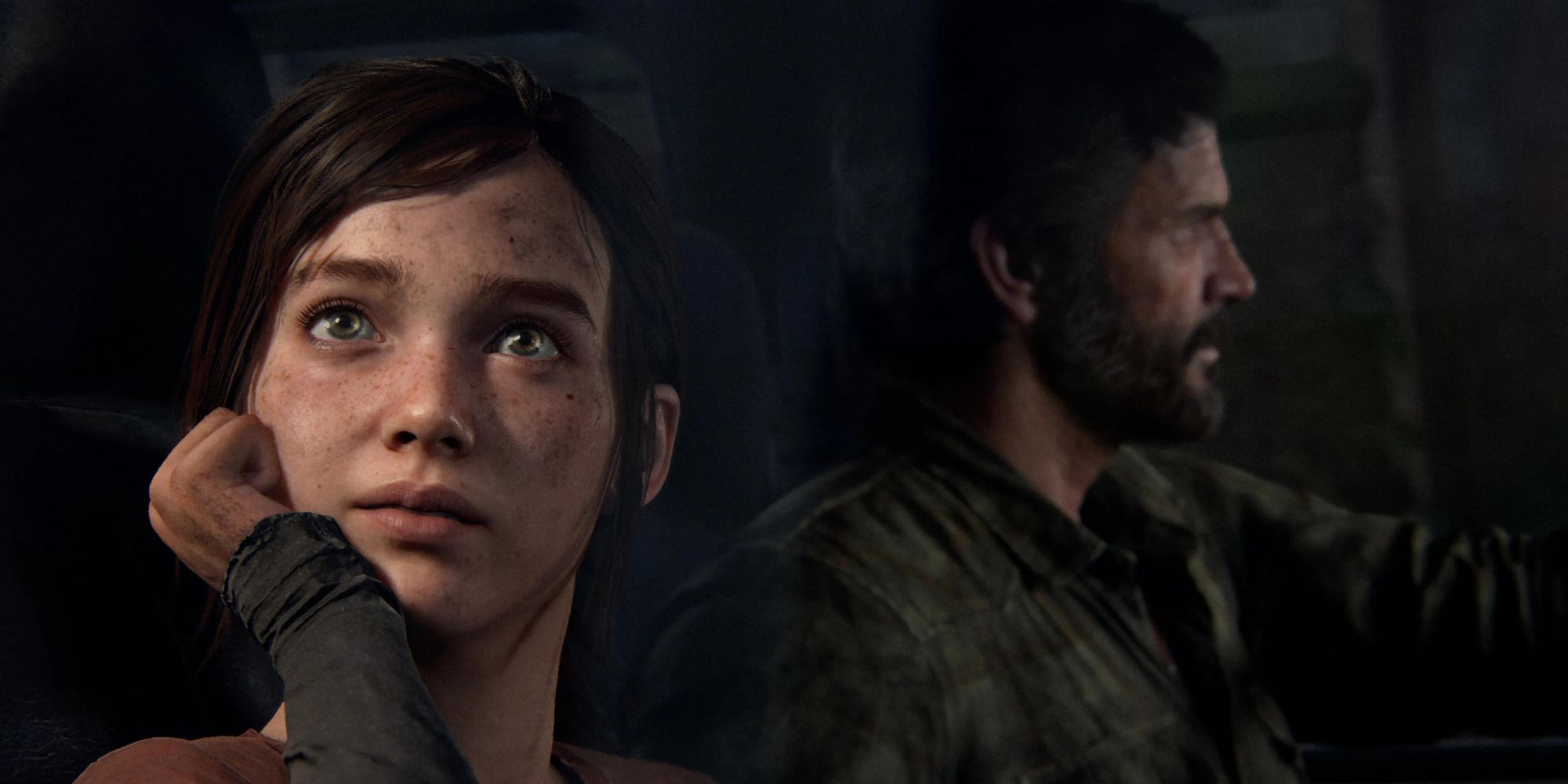It’s often said that you can’t understand someone until you’ve walked a mile in their shoes. Joel Miller walked over a thousand miles across America in The Last of Us, and our shoes were well-worn by the end of it. We wrestled with clickers and shot down bandits, we moved heaven and earth (and sometimes pallets) to get Ellie safely to her destination. When Joel made his damning choice in the game’s final hour, we were the ones pulling that trigger. We fired the first shot together.
I’ve enjoyed HBO’s The Last of Us tremendously. The game’s heartbreaking opening was expanded upon by Neil Druckmann and Craig Mazin to help us connect with the characters even deeper. I was skeptical of the swap from spores to tendrils at first, but the way the fungus literally claws from the mouths of its victims is terrifying. But for every positive change, I can’t help wondering if Joel’s final choice will land in the same way without us behind the wheel.
If you need a refresher on the game’s ending; Ellie is immune, and could potentially produce a vaccine. The Fireflies’ surgeons need to extract the cordyceps from her brain – a choice they’ve made without her knowledge or consent, and which will kill her. Joel rampages through floors of a refurbished hospital and kills everyone inside, including the doctors at the operating table. He denies humanity a future without the fungus to save his adoptive daughter.
It’s something straight out of Greek tragedy. In those ancient stories, protagonists are sometimes spurred into a ‘wolf-rage’ or possessed by Lyssa, the spirit of wild anger and rabies. Joel – and by extension the player – is filled with a similar mixture of deadly skill and righteous fury. You’ve unlocked every weapon, you’ve spent fourteen hours throwing nail bombs at hunters and dodging snipers. They don’t stand a chance. It’s both empowering and horrifying.
People still vouch for Joel. While there were no ‘good guys’ in that scenario, he still killed a surgery room full of doctors who were trying to save humanity. I felt that sympathy myself; we’d been protecting this child through so many harrowing battles, just letting it happen would be an admission of defeat. When I play video games I don’t like to lose, and if Ellie dies, then Joel loses everything. We, as the player, had been forging ahead for fourteen hours to stop that from happening.
The move to television presents a unique challenge. It cannot replicate that feeling, so it’ll have to do something different. We’ve already seen this reconstruction in episode one, when Joel, Ellie and Tess are facing down the barrel of a guard while smuggling Ellie out of Boston. We see Joel’s trauma triggered in real-time as images of the soldier who took Sarah’s life flash before his eyes.
In the game, Tess and Joel dispatch the two soldiers with brutal, survivalist efficiency. Joel simply wrestles a soldier’s pistol towards his own head and pulls the trigger. In the show, he beats that soldier to death with his fists, still pummeling long after they’re down for the count: his knuckles soaked in blood while Ellie watches, wide-eyed. The show uses the scene to show us how Joel’s trauma has shaped him into a violent killer.
The injection of further meaning into these scenes is not a surprise. In an interview with SFX magazine, Neil Druckmann told readers that the game’s violence would be toned down to make it more impactful in a ‘passive medium’. When it comes to HBO, it’s likely that the surgery massacre won’t be preceded by the same rabid ascent through waves of Fireflies. There’s never a strict divide between gameplay and story; Joel’s rampage is just as important as the surgery room massacre. Remove it, and the impact changes, for better or worse.
The interactivity of a game also changes the surgery scene itself. In the game you enter the room with your weapon drawn, the crosshair completely in your control. You sweep it over your target and fire. Joel’s decision doesn’t surprise you because you’re the one making it. In contrast, an unfamiliar viewer of the HBO series may not know what Joel is going to do until he pulls the trigger. They might be ambushed by his choice, creating an entirely unique experience that won’t mirror the game at all.
An audience is an observer. They won’t have walked the miles we did in Joel’s flawed shoes. They might be far more shocked by his actions than we were – and less sympathetic. This could set up a fascinating domino effect for Part 2. After all, that game’s story relies upon a strong emotional tether to Joel: one that could be cut after witnessing his crimes instead of participating in them.
Source: Read Full Article

